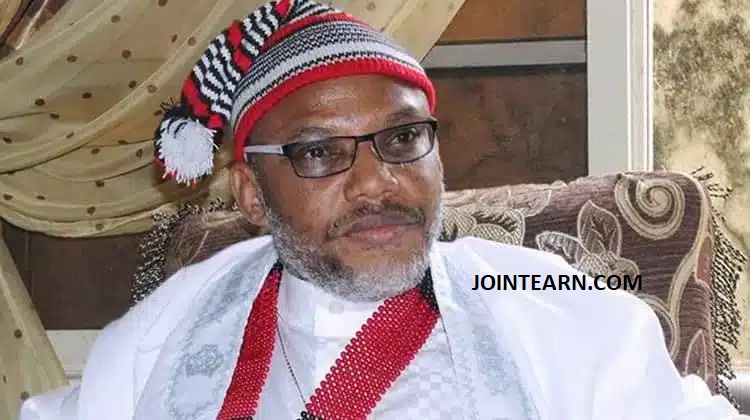In a bid to avert a potential nationwide strike, Minister of State for Labour and Employment, Festus Keyamo, met behind closed doors with the leadership of the National Meteorological Agency (NiMet) workers’ union to discuss issues surrounding their planned industrial action. The meeting, held on Tuesday at the Ministry of Labour’s office in Abuja, was aimed at finding common ground to resolve the ongoing dispute and avoid disruption of essential services provided by NiMet.
The workers had earlier threatened to commence an indefinite strike over unresolved issues related to welfare, salary disparity, and inadequate working conditions. The strike threat has raised concerns, as NiMet’s services are vital for weather forecasting, which impacts agriculture, aviation, and disaster preparedness across the country.
The Discontent Among NiMet Workers
The crisis within NiMet has been brewing for several months, with workers expressing dissatisfaction over what they describe as the government’s failure to meet their demands for improved salaries, allowances, and better working conditions. According to the union, members of staff at the agency have long been subjected to poor remuneration despite their critical role in national development.
In a letter to the federal government, the NiMet Workers’ Union (NWSU) highlighted several grievances, including the non-implementation of agreed salary adjustments and allowances that had been promised in previous negotiations. The union also cited concerns over outdated equipment and insufficient funding for the agency, which hampers the workers’ ability to carry out their duties efficiently.
“NiMet is a key player in sectors like agriculture, aviation, and disaster management, but our members have been neglected for too long. It is time for the government to prioritize our welfare,” said Mr. Usman Abubakar, the National President of NiMet Workers’ Union. He further warned that unless their demands were met, the union would have no choice but to proceed with their planned strike action, which could have serious implications for the country’s weather monitoring and forecasting services.
The Meeting with Keyamo
In response to the looming industrial action, Minister Keyamo initiated the closed-door meeting with union representatives from NiMet to address their concerns and seek a way forward. The Minister acknowledged the importance of the agency’s work and the validity of the workers’ concerns, emphasizing that the government was committed to resolving the issues amicably.
“NiMet plays a crucial role in providing weather data for aviation safety, disaster management, and agriculture. The government recognizes the importance of the agency’s services and is working toward addressing the challenges faced by the workers,” Keyamo said during the meeting.
He further reassured the union representatives that the Ministry of Labour was actively engaging with the Ministry of Finance and other relevant stakeholders to ensure that the concerns raised by NiMet workers would be addressed promptly.
The Government’s Response to the Strike Threat
The Nigerian government has been under increasing pressure to resolve the dispute quickly, as the weather agency’s functions are essential in the daily operations of several critical sectors, particularly aviation and agriculture. NiMet provides meteorological services that help predict weather patterns, which are vital for ensuring air travel safety, managing the effects of natural disasters, and assisting farmers in planning their agricultural activities.
Keyamo reiterated that the government was aware of the significance of NiMet’s work and that every effort would be made to ensure that workers’ grievances were not left unaddressed. He emphasized that while the government was keen on resolving the issue, it must also ensure that a fair and balanced solution is reached that takes into account the agency’s financial limitations.
“We will continue to engage the leadership of the NiMet workers’ union in dialogue. It is important that both sides come to the table with an open mind and a commitment to finding lasting solutions,” Keyamo stated.
Key Issues Discussed During the Meeting
Sources who were present at the closed-door meeting indicated that the discussions centered around the union’s demand for improved wages, better working conditions, and the allocation of more resources for NiMet’s operations. Union representatives called for the implementation of the salary adjustments that had been promised by the government several years ago but had yet to be carried out.
The workers also voiced concerns over the agency’s lack of modern equipment for accurate weather forecasting, which they believe hinders their ability to perform optimally. NiMet has been using outdated technology, and many workers feel that their contribution to national security and development is not being adequately recognized or supported.
In response, Keyamo reportedly assured the union that the government was exploring ways to increase funding for NiMet, particularly for the acquisition of modern forecasting technology. However, he also acknowledged the financial constraints currently affecting the country, which might delay immediate action.
The discussions also touched on the union’s demand for improved healthcare and insurance benefits for workers, especially given the hazardous nature of some of the agency’s field operations. The union has repeatedly raised concerns about the safety and welfare of their members who work in extreme weather conditions without adequate support.
Potential Impact of the Strike
Should the strike go ahead, it could have far-reaching consequences for the country’s economic and safety sectors. NiMet’s weather forecasts are crucial for guiding decisions in the aviation industry, with many airlines relying on the agency’s data for flight planning. Furthermore, farmers who depend on weather predictions for crop planting and harvesting could face significant losses without timely and accurate information from NiMet.
The potential disruption of NiMet’s services could also affect disaster management efforts, particularly in regions prone to flooding, drought, or other weather-related disasters. The government has emphasized that such a strike would be detrimental to national progress and urged the union to allow for further negotiations before taking drastic action.
Conclusion: The Road Ahead
As the meeting between Keyamo and NiMet workers concluded, both sides expressed optimism that a resolution could be reached without the need for a strike. Keyamo vowed to continue pushing for an expedited solution, and union representatives expressed their willingness to engage further, provided their core concerns were addressed in a timely manner.
“We are committed to working with the government to ensure that this issue is resolved. However, we cannot continue to tolerate the neglect of our welfare. We hope that this meeting marks the beginning of a positive change,” said Mr. Usman Abubakar, the union’s leader.
As of now, both the government and NiMet workers are expected to continue their dialogue in the coming days to avoid any disruptions to the essential services provided by the agency. The outcome of these negotiations will determine the future of the planned industrial action, with millions of Nigerians watching closely to see how the situation unfolds.












